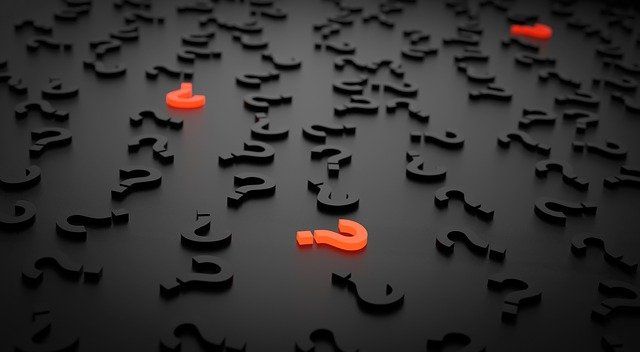The most recent educational strategy, conceptual learning, focuses on understanding vital concepts and arranging data. Unlike traditional learning models, which emphasize the ability to examine specific facts, conceptual learning emphasizes comprehending broader norms or ideas that may then be applied to a variety of explicit models in the real world.
In contrast to the bottom-up learning strategy used in traditional types of learning, conceptual learning takes a top-down approach. In simple terms, conceptual learning is a modern technique for swiftly understanding new concepts and subjects.
What is Conceptual Learning?
An integrated understanding of important concepts is referred to as conceptual learning. Students who have a conceptual understanding are more knowledgeable than those who only know theoretical facts and procedures. They grasp why a concept is significant and how it can be applied in various situations. They've put their information into a logical order that allows them to learn and understand new concepts by relating them to the concepts they already know. Retention is also aided by conceptual learning, as information and processes taught through comprehension are linked, they are easier to retain and use, and they may be recreated if forgotten.
An audiovisual tool is a terrific method to accomplish conceptual learning objectives. Although a simple audiovisual method is not the answer in and of itself, it can be a valuable tool in the teacher’s hands. They can utilize it to successfully communicate numerous mathematical and scientific concepts. Students who go on to higher education must be able to apply what they've learned. They can draw on what they've learned and apply it to new topics through conceptual learning. It assists teachers and students in developing a thorough grasp of how concepts interact with one another and creating an exemplar that will empower them throughout their careers.
When students and teachers have a conceptual understanding of the concepts and their relation to one another, they begin to construct their exemplar, which will allow them to solve any problem throughout their careers.
Advantages and Disadvantages of Conceptual Learning
Following are a few advantages of conceptual learning:
- Encourages conceptual understanding comprehension rather than memorization.
- Knowledge is imparted, and learning is ensured through conceptual learning, which is flexible and allows for continuous improvement.
- Helps concentrate on the outcome of the learning process
- Helps relate fresh information to previous knowledge, and thus leads to better retention of information
- As content changes all the time, but the concept does not, conceptual learning advances in terms of content but not the basic notion.
Following are a few disadvantages of conceptual learning:
- It is a lengthy and time-consuming process
- Involves customization and personalization according to abilities of the students
Types of Learning in Conceptual Learning
There are broadly to types of learning in conceptual learning:
- Conceptual Learning of Math: Students collaborate to create and answer arithmetic problems while considering the conditions. Teachers encourage students to develop basic and varied critical thinking skills and the connections between mathematics and other curriculum areas. Conceptual learning of math uses various exercises to help students understand tables, formulas, algorithms, etc. The importance of CLM is to assist students in becoming competent in essential mathematical skills. This approach necessitates critical thinking skills and regular evaluation using assignments.
- Conceptual Learning of Science: Misconceptions about science are easily formed in students’ minds and can be carried with them throughout their careers. It's critical to recognize these misunderstandings. Teachers and students can readily understand scientific concepts by developing better conceptual learning if misunderstandings are identified with their causes. CLS reflects the important goal of utilizing the power of current innovation to improve knowledge and comprehension of key concepts in science and innovation, with a special focus on intuitive and subjective techniques.
Why Conceptual Learning is Important?
Conceptual learning is the future of the education system. It is founded on a solid basis that fosters understanding among varied viewpoints. As a result, a learner must remember less and understand more to relate different concepts. For example, a student with a conceptual understanding of decimals may readily work with fractions, percentages, and ratios. Students who just have traditional knowledge, on the other hand, may struggle to cope because they will have to recollect the information as different concepts.
Conceptual learning encourages active participation since it requires students to participate actively in the process, whereas traditional types of learning require the teacher to explain information. The student is then expected to pay attention and practice the techniques while the dynamics remain unclear. However, when it comes to conceptual learning, both the student and teacher play a key role, with the teacher providing tasks or difficulties that help students fully develop an idea. Thus encouraging active participation of students.
Conclusion
Observing how conceptual learning and teaching are implemented in a real-life context might help you understand them better. Conceptual learning is recommended in education because it is thought to assist students to comprehend more about the various relationships. Conceptual understanding helps students in practically any situation. Such students are more effective and efficient in dealing with complex problems and situations. Conceptual learning is dependent on conceptual teaching. Educators must encourage different types of learning in conceptual learning and ensure that their students have a thorough understanding of the subject and essential concepts. Teachers must also learn to use various teaching techniques to guarantee that all subjects are thoroughly conveyed.
Rather than using traditional learning models that focus on memorizing topics, conceptual teaching that focuses on conceptual learning helps students engage in quality learning experiences focused on important concepts and central ideas. It provides a conceptual and holistic framework for creating integrated concepts linked to syllabus, abilities, and knowledge.
Teachmint offers the most sophisticated integrated school platform for the 21st century, bringing together the most effective elements of teaching, learning, and management together under a single roof. To know more about our features like performance management system, visit our website! Explore the range of our offerings like the lms portal.






